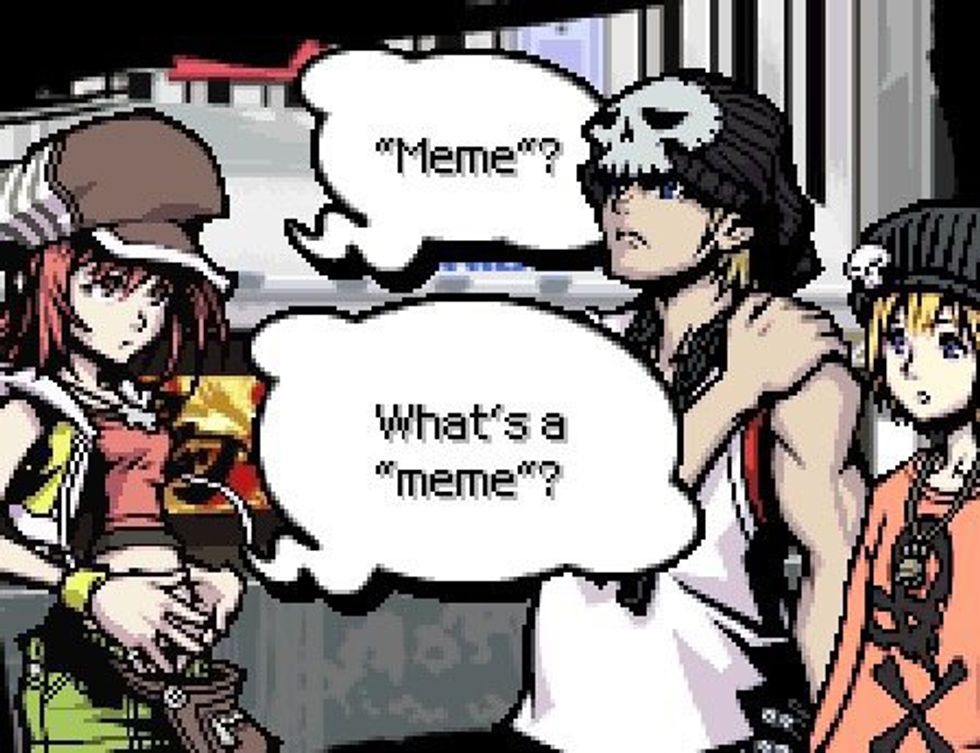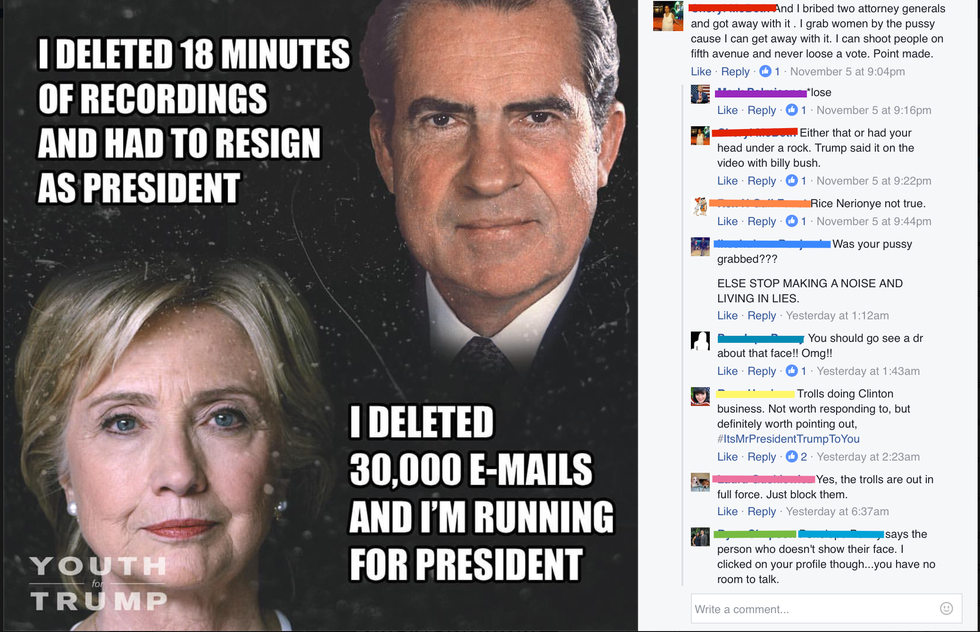Against all odds, the 2016 presidential race is finally(!) behind us. So, of course that means it's time to overanalyze everything that made this election cycle so bizarre, wild, and basically a reality TV show.
Of course, I'm talking about memes.
The definition of meme, according to the (non-Urban) dictionary, is "an idea, behavior, style, or usage that spreads from one person to another within a culture [that]... self-replicates, mutates, and responds to selective pressures". Coined by British evolutionary biologist Richard Dawkins in 1976, the term has since come to encompass ideas which rapidly spread from person to person online and are deliberately altered through human creativity and mimicry.
While memes as traditionally defined have always played a role in presidential elections, the intense battle between Hillary Clinton and Donald Trump was arguably the first presidential race in American history to be directly informed and influenced by them. "The Guardian" recently ran a fantastic analysis on the dangers of memes poisoning politics, but I want to take a slightly more objective approach on the topic - namely, how, exactly, did memes come to dominate this election, and what role did they play in making 2016 the most volatile election in recent memory?
Let's start by analyzing an arguable causation of this phenomena: politicians have finally embraced memes as a volatile form of user-generated propaganda. During the primaries Bernie Sanders gained unprecedented amounts of support from young people by cultivating a honest, relatable, witty persona and communicating directly with followers through a heavy social media presence. Reddit, Tumblr, Twitter, and Facebook users in turn created and distributed memes showing their support, inundating social media feeds and encouraging the creation of derivatives in the process. The effect here is threefold: one, it got an otherwise fringe candidate significant mainstream exposure when people began to wonder just who this "Bernie Sanders" constantly showing up on Facebook's "Trending" page was. Two, it allowed young people to have a direct impact on the election even during the primaries, and the positive reenforcement of their online activity encouraged them to get involved in politics at an unprecedented level. Three, it "educated" social media users about Sander's stance on key issues in a tongue-in-cheek manner which cast doubt on rival Democrat (and eventual nominee) Hillary Clinton's platform and policies. Essentially, memes slowly but surely began to overtake traditional means of propaganda like television ads, pamphlets, and the venerable political cartoon as the cheapest, most effective, and time efficient way of showing why you're the better choice for office. Conversely, for those who didn't embrace social media (or seemed incredibly naive about the internet, among other things) memes made subjectively less likable candidates subject to mockery in the most public way possible, to the point that they began to overshadow the actual candidate (let us pause for a moment of silence for the Guaca Bole!, Chris Christie's face, "I'm not a scientist", and Ted Cruz is the Zodiac Killer).
However, this sudden increase in memetic propaganda is not without consequences. In an age where we get so much of our information through social media, it became all too easy to spread malicious and occasionally baseless vitriol towards opposing candidates, confounding many in the process. The antics of Donald Trump were so outrageous and easy to mock that the memes distracted us from the real issues; by the time he was officially selected as the Republican nominee it was far too late to do anything to stop him. Moreover, hashtags and macros have become breeding grounds to spew vicious hate against those one doesn't agree with; while this is nothing new in the realm of politics, it's only been amplified through the overwhelming presence of social media.
For proof of how how much memes have become synonymous with this election, I point you to the first debate between Clinton and Trump on September 27, which attracted over 84 million television viewers alone (when accounting for streaming, the number skyrockets even higher) and demolished the 36-year record previously held by the October 28, 1980 debate between Jimmy Carter and Ronald Reagan. Memes were generated within seconds of a single utterance, ridiculous outburst, or unflattering angle and provided some much needed levity, but also lessened the impact of the truly important issues being discussed. Rather than paying attention to discussions of policy during the debates, I found myself refreshing various blogs just to see what other net denizens came up with - and I'm certainly not the only one guilty of this. How am I supposed to be an educated voter when I'm bombarded on a daily basis with page after page of memes, many of which are only tangentially related to the issues at play during this election? How am I supposed to know what claims are true and which claims are false or satirical? How do we take the incredible power of the internet and harness it in a more constructive way, rather than making a mockery of the democratic process?Time will only tell what the ultimate impact of memes on this election (and those in the future) will be, but one thing is for certain: no matter who wins or who loses on November 8th, we have set a precarious precedent for how we engage in politics.












































